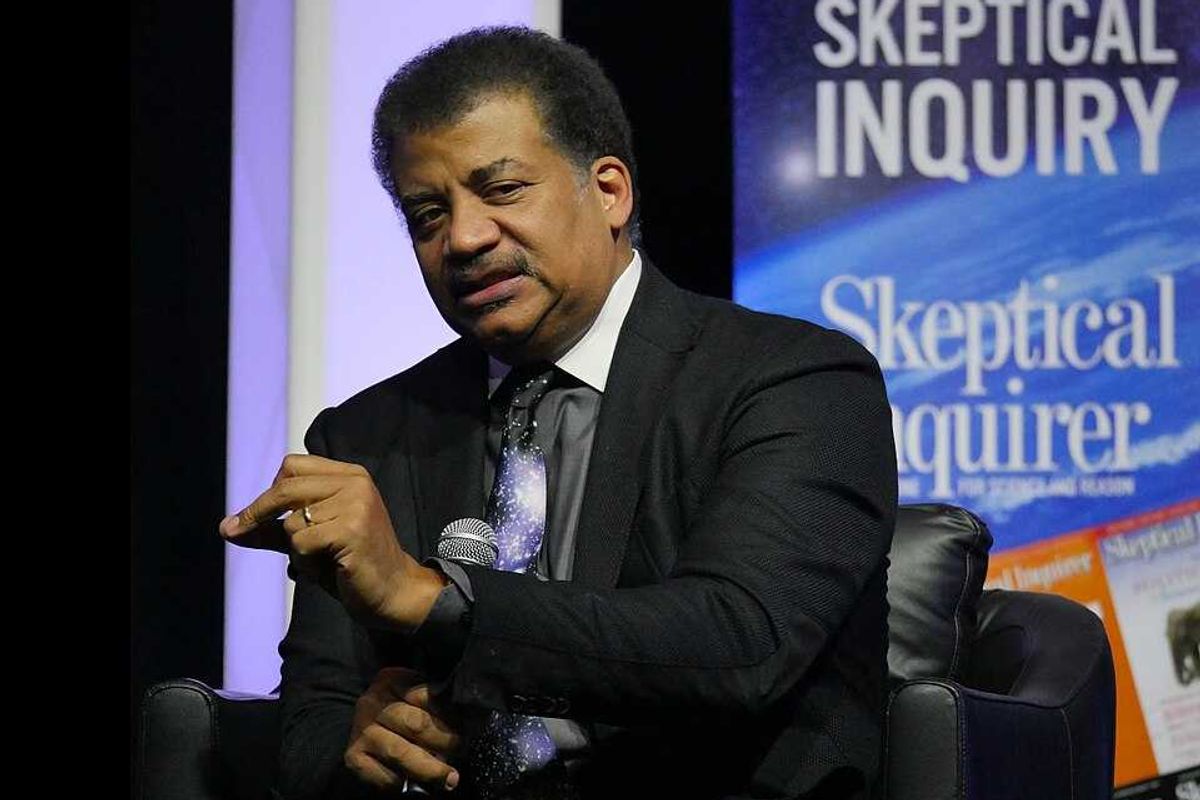Neil deGrasse Tyson explains the impossible concept of 'nothing' in less than one minute
"Behold, a true nothing."
Neil deGrasse Tyson at CSI Con 2022.
One of the greatest philosophical, scientific, and religious questions that humankind has ever asked is: Why is there something instead of nothing? Why do we have a universe, or possibly multiple universes, when there could just be a big nothing and no one or thing to contemplate its lack of existence?
To add another layer to this incredible mystery is the question of what nothing is. We know what something is; we see matter around us and can measure energy, but as humans, we’ve never been able to experience true nothingness, so it feels impossible to comprehend. That’s why we should all be thankful for astrophysicist and science communicator, Neil deGrasse Tyson. He created a video that takes us step by step through how we get from something to nothing in under a minute.
- YouTube www.youtube.com
Step 1: Life on Earth
“Is this nothing?” Tyson asks, waving his hand. “No, it's air. Let's go with there's no air."
Step 2: Outside our atmosphere
“No, there's still a few particles floating there between the planets, so it's not quite nothing.”
Step 3: Space
“How about between the stars? Less, but there's still something there. Between the galaxies? Less, but there's still just a few particles per cubic meter that lurk there.”
Step 4: Pure vacuum of space
“There's something called virtual particles that pop in and out of existence. Quantum physics tells us this. So there's still something there.”
Step 5: True nothing
"To get a true nothing, you have to go where there's not even space or time. But if laws of physics still apply, then there's still something there. So you have to go to not only where there's no matter and no space time, but where there are no laws at all. Behold, a true nothing.”
Tyson explained his concept of "nothing" in a StarTalk episode with his co-host, Chuck Nice.
- YouTube www.youtube.com
If that explanation didn’t quite pull you into the realm of understanding, Sean Carroll, a theoretical physicist and cosmologist, did his best to describe it to Vice.
“In quantum field theory, which we think is our best way of describing the universe that we have right now, space is kind of interesting,” Carroll explained. “Even if it’s as empty as it can be, there are still quantum mechanical [properties]—they’re just in a zero-energy state not doing anything. But you could probe the vacuum, as particle physics does, and discover its properties.
“Empty space is a very interesting place in modern physics; there’s a lot going on, whereas, if it were nothing, there would be nothing going on,” he said. “It’s probably better to think of nothing as the absence of even space and time, rather than space and time without anything in them.”
Now that you probably have a good idea of what nothing is, we’re back to the big question: Why is there something instead of nothing? Tyson and Carroll discuss the biggest question in the universe in the section below.
- YouTube www.youtube.com

